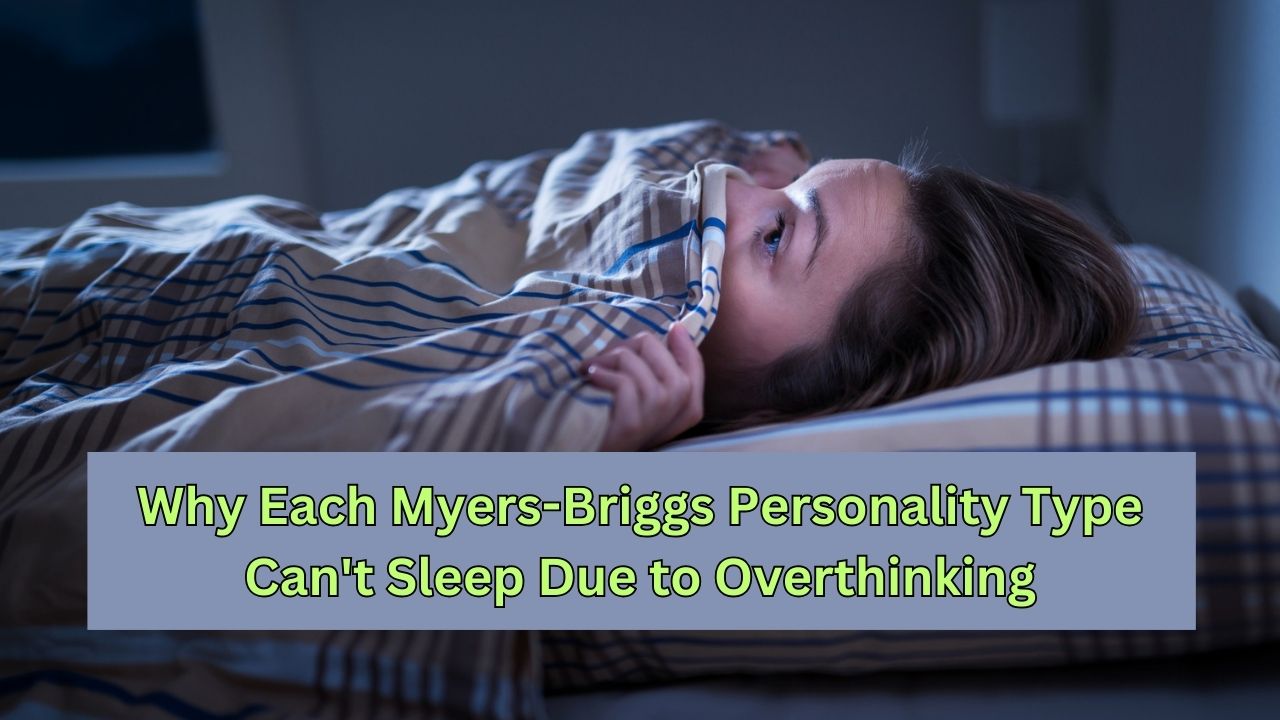Overthinking can lead to sleepless nights for many. Interestingly, your Myers-Briggs personality type might influence why you lie awake at night. Let’s explore how each type’s unique traits contribute to nighttime overthinking.
Understanding the Myers-Briggs Types
The Myers-Briggs Type Indicator (MBTI) categorizes individuals into 16 personality types based on preferences in four areas:
1. Extraversion (E) or Introversion (I): Focus on the outer world or inner world.
2. Sensing (S) or Intuition (N): Preference for concrete information or abstract concepts.
3. Thinking (T) or Feeling (F): Decision-making based on logic or personal values.
4. Judging (J) or Perceiving (P): Preference for structure or spontaneity.
These combinations result in 16 distinct personality types, each with unique characteristics.
Overthinking and Sleep: The Connection
Overthinking involves excessive rumination, often leading to stress and anxiety. At night, when external distractions are minimal, our minds may become overactive, hindering sleep. Each MBTI type has specific tendencies that can contribute to this overthinking.
How Each Personality Type Overthinks at Night
- **ENFP (Extraverted, Intuitive, Feeling, Perceiving):**
ENFPs are imaginative and enthusiastic. At night, they might brainstorm new adventures or ideas, making it hard to wind down. Their excitement can keep their minds racing, delaying sleep. - **INFP (Introverted, Intuitive, Feeling, Perceiving):**
INFPs are deep thinkers with rich inner worlds. They may replay conversations or ponder life’s meaning, leading to prolonged rumination that disrupts sleep. - **INFJ (Introverted, Intuitive, Feeling, Judging):**
INFJs often seek deep understanding and may overanalyze their interactions and future plans. This introspection can cause their minds to race when they should be resting. - **INTJ (Introverted, Intuitive, Thinking, Judging):**
INTJs are strategic thinkers who may focus on problem-solving at night. Their desire to perfect plans can lead to overanalysis, making it difficult to relax. - **ENTP (Extraverted, Intuitive, Thinking, Perceiving):**
ENTPs enjoy debating ideas and exploring possibilities. At night, they might mentally engage in arguments or develop theories, stimulating their minds and delaying sleep. - **ENTJ (Extraverted, Intuitive, Thinking, Judging):**
ENTJs are natural leaders who may plan future projects before bed. Their drive to achieve can result in relentless thinking, preventing their minds from unwinding. - **ENFJ (Extraverted, Intuitive, Feeling, Judging):**
ENFJs are empathetic and may worry about others’ well-being at night. Their concern for relationships can lead to overthinking social interactions, impacting sleep quality. - **INTP (Introverted, Intuitive, Thinking, Perceiving):**
INTPs are analytical and may dissect complex problems in their minds at night. Their quest for understanding can keep their thoughts active, hindering relaxation. - **ISFJ (Introverted, Sensing, Feeling, Judging):**
ISFJs value harmony and may replay daily events, worrying about others’ perceptions. This reflection can lead to anxiety, making it hard to fall asleep. - **ISTJ (Introverted, Sensing, Thinking, Judging):**
ISTJs are detail-oriented and may review tasks or responsibilities at night. Their focus on duty can result in overthinking, delaying sleep onset. - **ESFJ (Extraverted, Sensing, Feeling, Judging):**
ESFJs are social and may worry about their relationships before bed. Concerns about social harmony can lead to overanalysis of interactions, affecting sleep. - **ESTJ (Extraverted, Sensing, Thinking, Judging):**
ESTJs are organized and may mentally plan upcoming tasks at night. Their drive for efficiency can cause their minds to remain active, preventing restful sleep. - **ISFP (Introverted, Sensing, Feeling, Perceiving):**
ISFPs are sensitive and may reflect on personal values and experiences at night. This introspection can lead to emotional overthinking, disrupting sleep patterns. - **ISTP (Introverted, Sensing, Thinking, Perceiving):**
ISTPs are problem-solvers who may mentally troubleshoot issues before bed. Their analytical nature can keep their minds engaged, making it hard to unwind. - **ESFP (Extraverted, Sensing, Feeling, Perceiving):**
ESFPs are spontaneous and may replay exciting events or anticipate future fun at night. Their enthusiasm can lead to an overactive mind, delaying sleep. - ESTP (Extraverted, Sensing, Thinking, Perceiving):
My Name is Chris Mueller , I Work as a Content Writer for Sugyan and I like Writing Articles
